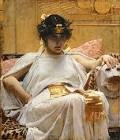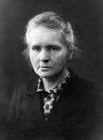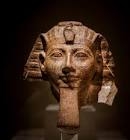Cleopatra – The Last Pharaoh Of Egypt | Age, Bio, Birthday, Family, Net Worth
Cleopatra VII Philopator, known to history simply as Cleopatra, was a remarkable figure who left an indelible mark on the ancient world. Born in 69 BC, Cleopatra was the last active ruler of the Ptolemaic Kingdom of Egypt, with a lineage tracing back to Ptolemy I Soter, a general of Alexander the Great. Cleopatra’s reign was marked by political intrigue, strategic alliances, and cultural resurgence. She is perhaps best known for her relationships with the Roman generals Julius Caesar and Mark Antony, which have cemented her reputation as a seductress and femme fatale. Beyond the romanticized portrayals, Cleopatra was a shrewd politician and a capable ruler who sought to maintain Egypt’s independence in the face of Roman expansion.

Personal Information
| Full Name | Cleopatra VII Philopator |
|---|---|
| Nick Name / Stage Name | Cleopatra |
| Born | 69 BC, Alexandria, Egypt |
| Died | 30 BC, Alexandria, Egypt |
| Age | 39 |
| Gender | Female |
| Zodiac Sign | Not applicable |
| Hometown | Alexandria |
| Nationality | Egyptian |
| Ethnicity/Descent | Greek Egyptian |
| Years Active | 51 BC – 30 BC |
| Marital Status | Married |
| Husband/Wife | Mark Antony |
| Children | Caesarion, Alexander Helios, Ptolemy Philadelphus, Cleopatra Selene II |
| Political Affiliation | Ptolemaic Kingdom |
| Alma Mater | Royal Academy of Alexandria |
| Profession | Queen of Egypt |
| Net Worth (approx.) | Wealthy, Control of Egypt’s Resources |
| Debut | Became Queen of Egypt in 51 BC |
| School | Royal Academy of Alexandria |
| College | Not applicable |
| Education Qualification / Degree | Royal Education in Science, Literature, and Philosophy |
| Hobbies/Habits/Interests | Literature, Astronomy, Political Discourse |
| Favorite Clothing Brands | Ancient Egyptian Attire |
| Favorite Gadgets | Not applicable |
| Food Habit | Ancient Egyptian Cuisine |
| Awards | Not applicable |
| Notable Works | Cultural and Educational Reforms in Egypt |
| Website | N/A |
Early Career
Cleopatra’s early career was shaped by the political turmoil within the Ptolemaic Kingdom. Her father, Ptolemy XII Auletes, appointed Cleopatra as his co-regent in 51 BC, but her involvement in the political affairs of the kingdom led to her exile by her younger brother, Ptolemy XIII. Undeterred, Cleopatra raised an army to challenge her brother’s rule, marking the beginning of her eventful career in leadership.
Education
Cleopatra received a royal education at the prestigious Royal Academy of Alexandria, where she immersed herself in the study of science, literature, and philosophy. Her education laid the foundation for her intellectual pursuits and informed her later decisions as a ruler.
Career
Cleopatra’s career as the Queen of Egypt was characterized by her keen political acumen and ability to navigate the treacherous waters of Mediterranean geopolitics. Her relationship with Julius Caesar, whom she met after being exiled from Egypt, not only resulted in her restoration to the throne but also marked the beginning of her involvement with Roman politics.
Following Caesar’s assassination, Cleopatra aligned herself with Caesar’s protege, Mark Antony, forming both a political and romantic partnership that would alter the course of history. Together, Cleopatra and Mark Antony faced off against Octavian (later Augustus) in the Roman Civil War. Their defeat at the Battle of Actium in 31 BC sealed the fate of the Ptolemaic Kingdom, leading to the Roman annexation of Egypt.
Contributions and Impact
Cleopatra’s most significant contributions were in the cultural and educational realms. She was a patron of the arts and scholarship, investing in the restoration of Egypt’s ancient monuments and the expansion of the Royal Library of Alexandria. Her own court became a center of intellectual discourse, attracting scholars and philosophers from across the Mediterranean.
In the political arena, Cleopatra’s attempt to maintain Egypt’s independence in the face of Roman expansion ultimately failed, but her resilience inspired subsequent generations of leaders. Her diplomatic skills and ability to forge strategic alliances have been studied and admired by historians and politicians alike.
Awards and Honors
As a monarch of great influence, Cleopatra received numerous honors during her lifetime, though few are documented in historical records. She was known to have been recognized for her support of the arts and culture within Egypt.
Personal Life
Cleopatra’s personal life was the subject of much speculation, owing in part to the romanticized accounts of her relationships with Julius Caesar and Mark Antony. She was known for her charisma and powers of seduction, attributes that have colored her legacy as much as her political achievements.
Personal Traits
| Trait | Description |
|---|---|
| Personality | Intelligent, Charismatic, Politically Savvy |
| Interests | Literature, Science, Philosophy |
| Hobbies | Cultural Patronage, Stargazing, Political Discourse |
| Passions | Egyptian Independence, Cultural Preservation |
| Values | Leadership, Education, Cultural Heritage |
| Quirks | Mythologized as Femme Fatale, Multilingual |
| Fun Facts | Allegedly Dissolved Pearls in Vinegar for a Bet |
Height, Weight, Body Measurements
| Height | Not Applicable |
|---|---|
| Weight | Not Applicable |
| Body Measurements | Not Applicable |
| Eye Color | Not Applicable |
| Hair Color | Not Applicable |
| Chest Size | Not Applicable |
| Waist Size | Not Applicable |
| Biceps Size | Not Applicable |
| Height in Centimeters | Not Applicable |
| Height in Meters | Not Applicable |
| Height in Feet Inches | Not Applicable |
Scientific or Professional Career
| Fields of Expertise | Leadership, Diplomacy, Cultural Patronage |
|---|---|
| Institutions | Royal Court of Egypt |
| Contributions | Cultural Restoration, Library Expansion, Intellectual Discourse |
Legacy
Cleopatra’s legacy is multifaceted, having been shaped by both historical accounts and mythological embellishments. As the last pharaoh of Egypt, she represents the end of an era and the culmination of Egypt’s millennia-old monarchy. Her story has inspired countess works of art, literature, and film, cementing her place in popular culture.
Conclusion
In conclusion, Cleopatra VII Philopator’s life is a testament to the indomitable spirit of leadership and resilience. Her ability to navigate the complex web of ancient politics has secured her position as one of the most iconic figures of antiquity. Beyond the romanticized portrayals, Cleopatra was a visionary leader who left an indelible mark on the cultural and intellectual landscape of Egypt.
In the field of history, Cleopatra’s name is synonymous with intrigue and romance, but her true legacy lies in her unmatched intellect, political savvy, and unwavering commitment to her kingdom. As Egypt’s last pharaoh, she will forever be remembered as a symbol of cultural pride and independence.





